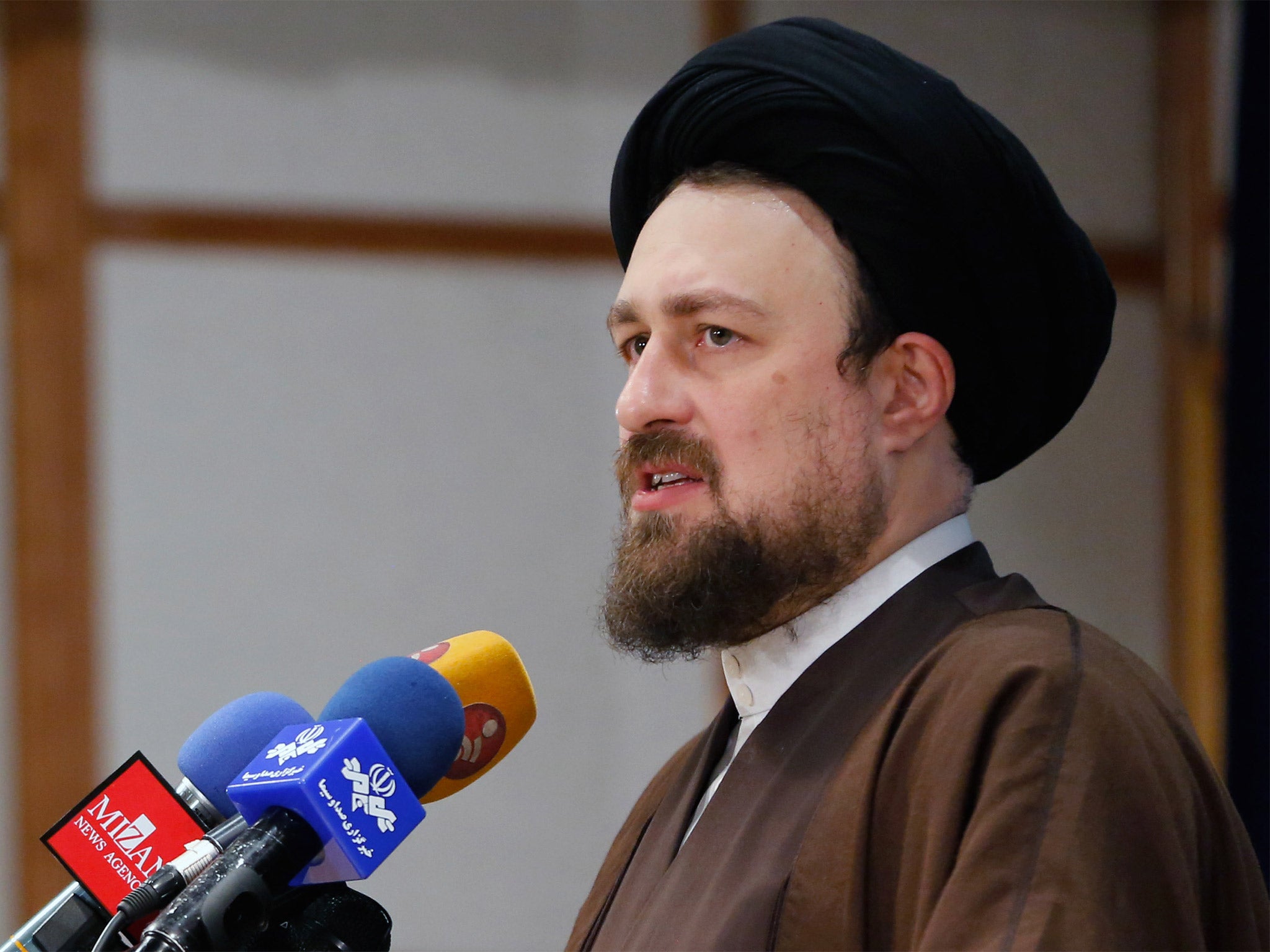Iran's swift release of 10 US sailors shows a change in attitude towards the West
The Revolutionary Guards, traditionally portrayed as reactionary, were believed to be keen for the affair to be resolved quickly


Your support helps us to tell the story
From reproductive rights to climate change to Big Tech, The Independent is on the ground when the story is developing. Whether it's investigating the financials of Elon Musk's pro-Trump PAC or producing our latest documentary, 'The A Word', which shines a light on the American women fighting for reproductive rights, we know how important it is to parse out the facts from the messaging.
At such a critical moment in US history, we need reporters on the ground. Your donation allows us to keep sending journalists to speak to both sides of the story.
The Independent is trusted by Americans across the entire political spectrum. And unlike many other quality news outlets, we choose not to lock Americans out of our reporting and analysis with paywalls. We believe quality journalism should be available to everyone, paid for by those who can afford it.
Your support makes all the difference.When the Iranian Revolutionary Guards captured 15 British sailors and marines who had been on a patrol off the shores of an Iraq then still under occupation by the US and UK in March 2007, it led to a major international crisis.
The Iranian president, Mahmoud Ahmadinejad, accused Britain of “blatant aggression”. Tony Blair declared that the time had come to “ratchet up diplomatic pressure” on Tehran and show how the regime faced “total isolation”. George W Bush called for “immediate and unconditional release” of the captives and two US aircraft-carriers were dispatched to the Persian Gulf.
This week, 10 US Navy personnel captured by the Iranians on their territorial waters were released after being held overnight. General Ali Fadavi of the Revolutionary Guards stressed that the Americans were not seeking to carry out “an aggressive act, an act of espionage”. An investigation (a remarkably quick one) had concluded, he added, that “navigational failure was to blame”. The Pentagon said the sailors had not been harmed in any way during their “detention, which was brief”.
What happened highlights the rapprochement taking place between Tehran and the West since the signing of the deal on Iran’s nuclear programme. The most significant outcome of this, from the Iranian side, is likely to come before the weekend, with the start of international sanctions being lifted. This comes after the International Atomic Energy Agency is expected to verify that Tehran has fulfilled the last requirement, the disabling of the Arak heavy water reactor which could have been used to produce polonium.
The incident also gave another intriguing insight into Iranian power-politics. The Revolutionary Guards have been traditionally portrayed as reactionary, instinctively anti-Western. Yet, it is believed, it was they who were keen for the situation to be resolved swiftly. Last week, when the Saudi embassy in Tehran was set alight following the execution of the Shia cleric Shiekh Nimr al-Nimr, one of most senior Iranians to speak out was Mohsen Kazemini, a Revolutionary Guards commander, who condemned it as “wrong and mistaken”. He also warned that “rogue elements” are seeking to destabilise the moderate government of President Hassan Rouhani.
The Revolutionary Guards answer directly to Supreme Leader Ayatollah Ali Khameini, who has taken a studiedly ambivalent stance in relations with the West, repeatedly warning against trusting the Americans, but not blocking the nuclear agreement.
There is another intriguing aspect to the political situation. One of the candidates for elections to the assembly of experts, the clerical body which will appoint the next Supreme Leader, is Hassan Khomeni, the grandson of Ayatollah Ruhollah Khomeini, the instigator of the revolution which overthrew the Shah, and viewed as an implacable adversary of the West. Khomeini, 43, however, is a moderniser. He supported President Rouhani in the 2013 election and his campaign appears to have begun through his son, Ahmad’s Instagram account.
Conservatives have blocked many reformist candidates from elections, but it is unlikely they will be able to do so to the man whose grandfather was the founder of the Islamic Republic. However, hardliners have pledged to halt reforms they consider to be un-Islamic.
Iran is involved, directly or indirectly, in wars in Iraq, Syria and Yemen. Even the lifting of the sanctions may not be quite the boon expected. The unfreezing of $56bn out of $100bn of assets will undoubtedly be a significant boost, but the drop in oil prices from $100 to $30 a barrel has been a huge economic blow. The future is unlikely to be plain sailing.
Join our commenting forum
Join thought-provoking conversations, follow other Independent readers and see their replies
Comments